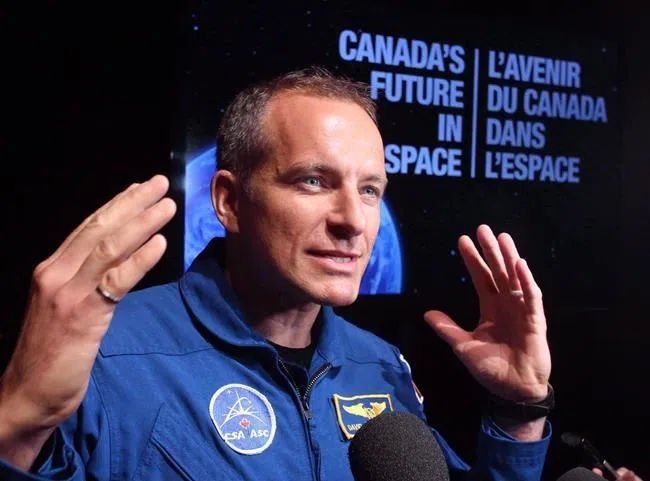
Canadian astronaut says launch most dangerous part of upcoming space mission
MONTREAL — As David Saint-Jacques makes final preparations for the first manned Russian rocket launch since last month’s near-catastrophic Soyuz failure, the Canadian astronaut is bracing for some heart-pounding moments.
They will come as he and two fellow astronauts blast off Monday from the Baikonur Cosmodrome on their way to the International Space Station.
“Among all the tasks, the most complicated — the most dangerous — is the 10 minutes being launched in orbit,” Saint-Jacques said Thursday from Kazakhstan, where he is in quarantine.
On Oct. 11, a rocket failure forced a Soyuz capsule carrying two astronauts to abort and make an emergency landing. Russia suspended all manned space launches pending an investigation before giving the green light Nov. 1.
